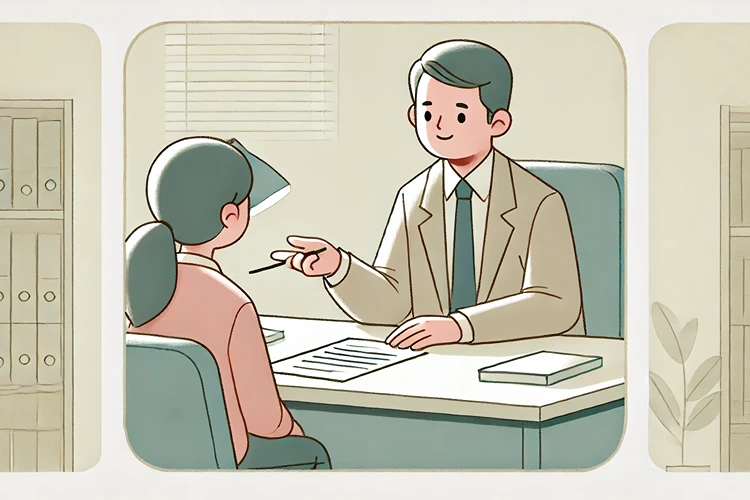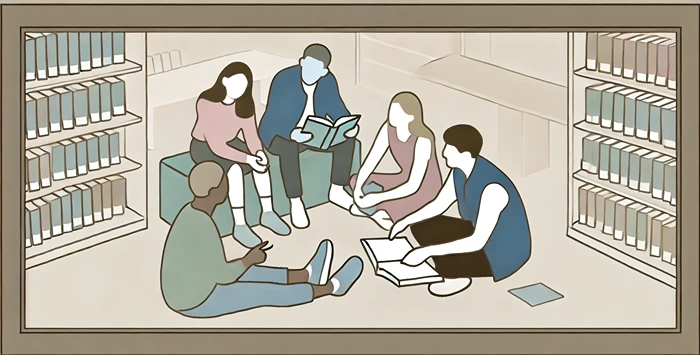College can be an exhilarating time full of new experiences, but it can also be challenging. One of the most difficult experiences students may face is failing a course. It’s easy to feel overwhelmed or discouraged when things don’t go as planned. But failing a college course isn’t the end of the world—it’s a bump in the road, not a dead end. In this article, we’ll explore how to handle college course failure and find the right solutions to move forward.
Why Failing a College Course Isn’t the End of the World
No one likes to fail, especially when it comes to academics. But the truth is, failure is a part of life, and it’s often through failure that we learn the most valuable lessons. College course failure can feel like a significant setback, but it doesn’t define your entire college experience or your future. Understanding why failure happens and how to cope with it is the first step toward recovery.
There are many reasons why students fail a course, and they aren’t always related to intelligence or ability. Factors such as personal issues, time management struggles, difficulty understanding the material, or even external stressors can contribute to academic challenges. Recognizing these factors can help you address them and prevent similar issues in the future.
Helpful Hint:
Take some time to reflect on what contributed to the failure. Were there personal circumstances, like health issues or family problems? Did you struggle with the material, or was it a time management issue? Understanding the root cause can help you create a plan to overcome similar obstacles in the future.
How to Deal with the Emotional Impact of Failing a College Course
The emotional toll of failing a course can be significant. Feelings of disappointment, embarrassment, and even shame are common. You might worry about how this failure will impact your GPA, your financial aid, or your future career. These feelings are valid, but it’s important not to let them consume you.
Here are some steps to help manage the emotional impact:
- Allow Yourself to Feel: It’s okay to feel upset. Acknowledge your emotions, but don’t let them define your self-worth.
- Seek Support: Talk to friends, family, or a counselor about your feelings. They can offer a fresh perspective and emotional support.
- Focus on the Positive: While failing a course isn’t ideal, it can lead to personal growth. Consider what you’ve learned about yourself and how you can improve moving forward.
- Take a Break: Sometimes, a short break can help you clear your mind and approach the situation with a new perspective.
Common Reasons for Failing a College Course and Potential Solutions
| Reason for Failure | Potential Solution |
|---|---|
| Poor Time Management | Develop a structured study schedule, use time management tools like planners or apps, and break assignments into smaller, manageable tasks. |
| Difficulty Understanding Material | Seek help from tutors, attend study groups, visit office hours, and utilize additional resources like online tutorials or academic workshops. |
| External Stressors (e.g., personal or family issues) | Consider counseling services, communicate with professors about your situation, and explore options like course withdrawal or incompletes if necessary. |
| Lack of Engagement in Class | Participate actively in class, sit at the front, ask questions, and try to connect the material to your interests or future career goals. |
| Inadequate Study Techniques | Incorporate active study methods such as flashcards, practice tests, and teaching the material to others. Regularly review notes and seek feedback on your study strategies. |
What to Do After Failing a Course
Once you’ve had some time to process the emotional side of things, it’s important to take practical steps to address the failure. Here’s how you can start:
1. Meet with Your Professor

Your professor is one of your best resources when it comes to understanding what went wrong. Schedule a meeting to discuss your performance in the course. Ask specific questions about where you struggled and how you can improve in the future. Professors can often provide insights you might not have considered and may offer suggestions for additional resources or strategies.
2. Review Your Study Habits
Take a close look at how you approached studying for the course. Were you consistent with your study sessions? Did you use effective study techniques? Sometimes, small adjustments in how you study can make a big difference. For example, if you crammed for exams, try spreading out your study sessions over a longer period. If you didn’t use active study methods like flashcards or practice tests, consider incorporating those into your routine.
3. Consider Retaking the Course
Many colleges allow students to retake a course to replace a failing grade. If the course is required for your major or significantly impacts your GPA, this might be a good option. Retaking the course with a different professor or during a different term can also change the experience. However, be sure to weigh the pros and cons, such as the financial cost and time commitment, before making a decision.
Stats:
According to a study by the National Center for Education Statistics, approximately 30% of first-year college students retake at least one course during their college career. This shows that course failure is not uncommon, and many students successfully recover by retaking classes.
4. Explore Other Academic Support Options
If you struggled with the material, consider seeking out additional academic support. Many colleges offer tutoring services, study groups, and academic workshops. Some courses also have teaching assistants (TAs) who can offer additional help. Don’t hesitate to use these resources—they’re there to help you succeed.
How to Prevent Future Course Failures
Preventing future course failures requires a proactive approach. Here are some strategies to help you stay on track:
1. Develop Better Time Management Skills
Time management is crucial in college. Balancing classes, homework, extracurricular activities, and personal life can be overwhelming. Use tools like planners, calendars, or time management apps to keep track of your responsibilities. Break down large tasks into smaller, manageable steps, and set realistic deadlines for yourself.
2. Stay Engaged in Class
Active participation in class can significantly impact your understanding of the material. Sit at the front of the class, ask questions, and engage in discussions. If you’re struggling to stay engaged, try to relate the material to your interests or future career goals. Taking notes by hand, rather than on a laptop, can also help you retain information better.
3. Prioritize Your Mental and Physical Health
Your health plays a significant role in your academic success. Make sure you’re getting enough sleep, eating well, and exercising regularly. Mental health is just as important—don’t hesitate to seek support if you’re feeling overwhelmed or anxious. Colleges often offer counseling services that can help you manage stress and maintain a healthy balance.
When to Consider Changing Your Major
Sometimes, course failure might be a sign that your current major isn’t the right fit. If you’ve struggled with multiple courses in your major, it might be worth considering whether this field is truly where your passions and strengths lie. Here’s how to approach this decision:
1. Reflect on Your Interests and Strengths
Take some time to think about what you enjoy and where you excel. Are there other subjects that capture your interest more than your current major? Are you passionate about the career opportunities your current major offers? If the answers are unclear, consider meeting with a career counselor to explore your options.
2. Talk to Advisors and Mentors
Advisors and mentors can offer valuable perspectives on whether a major change might be beneficial. They can help you understand how changing your major might impact your graduation timeline, financial aid, and career goals. They can also suggest alternative majors that align with your interests and skills.
3. Consider the Long-Term Implications
Changing your major is a big decision, so it’s important to think about the long-term implications. Will a different major open up more career opportunities? How will it affect your remaining time in college? Weigh the pros and cons carefully, and don’t rush the decision.
How to Communicate College Course Failure to Parents or Guardians
One of the most daunting aspects of failing a course can be telling your parents or guardians. It’s natural to feel apprehensive, but honest communication is key. Here’s how to approach the conversation:
1. Be Honest and Direct
It’s important to be upfront about what happened. Explain the situation clearly, without trying to downplay the seriousness of the failure. Share the reasons why you struggled in the course, whether it was due to personal challenges, difficulty with the material, or other factors.
2. Show That You Have a Plan
Parents are likely to be concerned, but they’ll appreciate knowing that you’re taking responsibility and have a plan to address the issue. Discuss the steps you’re taking to improve, such as retaking the course, seeking tutoring, or making adjustments to your study habits. Showing that you’re proactive can help ease their worries.
3. Be Prepared for Their Reaction
Remember, your parents or guardians might be disappointed or upset, and that’s okay. Give them time to process the information. They might need a moment to collect their thoughts before responding. Be patient, and understand that their reaction comes from a place of concern for your well-being and future success.
4. Ask for Their Support
After discussing the failure and your plan, ask for their support moving forward. Whether it’s emotional encouragement, financial assistance for retaking the course, or simply being there to listen, having your parents on your side can make a big difference in your journey to recovery.
Helpful Hint:
Approach the conversation with your parents when you’re calm and collected. Practice what you want to say beforehand to ensure you cover all the important points. Remember, your parents care about your success, and they’ll likely be more supportive if you approach the situation with maturity and a clear plan.
How College Course Failure Can Impact Your Future—and How to Overcome It
Failing a course in college might seem like a major setback, but it doesn’t have to derail your future. Here’s how you can minimize the impact and move forward:
1. Impact on GPA and Graduation Timeline
One of the immediate concerns after failing a course is how it will affect your GPA and graduation timeline. A lower GPA can impact your eligibility for scholarships, internships, and even graduate programs. However, retaking the course or taking additional credits can help you recover academically.
2. Financial Aid Considerations
Failing a course can also affect your financial aid, especially if it causes you to fall below the required credit load or GPA for maintaining aid. It’s important to speak with your financial aid office to understand the implications and explore options such as academic probation or appealing for continued aid.
3. Career and Graduate School Implications
While a course failure might be a blemish on your transcript, it’s unlikely to be a deal-breaker for most employers or graduate schools—especially if you demonstrate improvement in subsequent semesters. Many students have overcome academic setbacks and gone on to successful careers and advanced degrees.
4. Strategies for Overcoming the Impact
The key to overcoming the impact of a course failure is to show consistent improvement. Focus on excelling in your other courses, get involved in extracurricular activities, and seek out internships or volunteer opportunities that align with your career goals. These experiences can help offset the impact of a single course failure on your overall profile.
How to Stay Motivated After Failing a College Course
Maintaining motivation after a setback like course failure can be tough, but it’s essential for bouncing back. Here’s how you can stay motivated and keep moving forward:
1. Set New Goals
After failing a course, setting new academic and personal goals can help you refocus. Whether it’s improving your GPA, mastering a difficult subject, or getting more involved on campus, having clear goals gives you something to work toward.
2. Celebrate Small Wins
Recovery from failure is a gradual process, so it’s important to recognize and celebrate small victories along the way. Did you do well on a quiz or assignment? Acknowledge it! These small successes can build your confidence and keep you motivated.
3. Surround Yourself with Positive Influences
The people you spend time with can significantly impact your mindset. Surround yourself with friends, mentors, and peers who encourage and support you. A positive environment can help you stay focused and motivated, even when things get tough.
4. Keep the Big Picture in Mind
Remember why you’re in college and what you hope to achieve. Keeping your long-term goals in mind can help you stay motivated, even when you face setbacks. Remind yourself that failure is a part of the learning process and doesn’t define your entire college experience.
Finding Resources and Support After a Course Failure

There are numerous resources available to help students recover from a course failure. Here’s how you can find the support you need:
1. Academic Advising
Academic advisors are a valuable resource for students who have failed a course. They can help you understand your options, such as retaking the course, adjusting your course load, or exploring alternative majors. Advisors can also provide guidance on academic policies and procedures.
2. Tutoring and Learning Centers
Many colleges offer tutoring services and learning centers where students can receive additional academic support. Whether you need help with specific subjects or general study skills, these resources can be instrumental in helping you succeed in your future courses.
3. Counseling Services
Failing a course can take an emotional toll, and counseling services can provide the support you need to cope with stress, anxiety, or other mental health concerns. Many colleges offer free or low-cost counseling to students, so don’t hesitate to reach out if you’re struggling emotionally.
4. Peer Support Groups
Sometimes, talking to other students who have experienced similar challenges can be incredibly helpful. Peer support groups offer a space to share experiences, exchange tips, and provide mutual encouragement. Look for student organizations or support groups on campus that focus on academic challenges.
FAQs
Wrapping Up
Failing a college course can be a tough pill to swallow, but it’s important to remember that it doesn’t define your entire academic journey. The key is to take proactive steps to address the failure, whether that means retaking the course, seeking additional support, or reevaluating your study habits. By approaching the situation with a growth mindset and utilizing available resources, you can recover from this setback and continue working towards your goals. Remember, your path to success is unique, and overcoming challenges like this only strengthens your ability to thrive in the future. Stay focused, stay motivated, and know that you have the tools and support to succeed.
